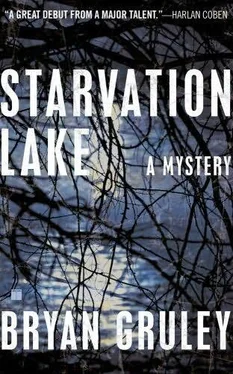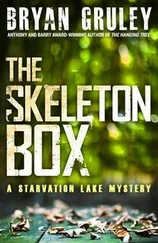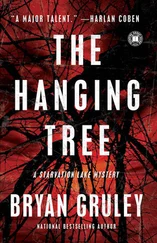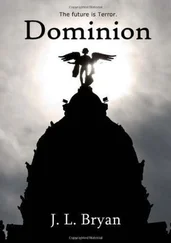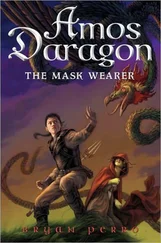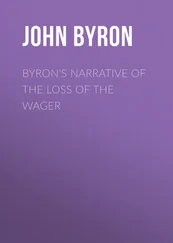Bryan Gruley - Starvation lake
Здесь есть возможность читать онлайн «Bryan Gruley - Starvation lake» весь текст электронной книги совершенно бесплатно (целиком полную версию без сокращений). В некоторых случаях можно слушать аудио, скачать через торрент в формате fb2 и присутствует краткое содержание. Жанр: Криминальный детектив, на английском языке. Описание произведения, (предисловие) а так же отзывы посетителей доступны на портале библиотеки ЛибКат.
- Название:Starvation lake
- Автор:
- Жанр:
- Год:неизвестен
- ISBN:нет данных
- Рейтинг книги:4 / 5. Голосов: 1
-
Избранное:Добавить в избранное
- Отзывы:
-
Ваша оценка:
- 80
- 1
- 2
- 3
- 4
- 5
Starvation lake: краткое содержание, описание и аннотация
Предлагаем к чтению аннотацию, описание, краткое содержание или предисловие (зависит от того, что написал сам автор книги «Starvation lake»). Если вы не нашли необходимую информацию о книге — напишите в комментариях, мы постараемся отыскать её.
Starvation lake — читать онлайн бесплатно полную книгу (весь текст) целиком
Ниже представлен текст книги, разбитый по страницам. Система сохранения места последней прочитанной страницы, позволяет с удобством читать онлайн бесплатно книгу «Starvation lake», без необходимости каждый раз заново искать на чём Вы остановились. Поставьте закладку, и сможете в любой момент перейти на страницу, на которой закончили чтение.
Интервал:
Закладка:
Coach Blackburn tolerated our rituals because they made us believe in ourselves, while insisting that he himself had never fallen for such silliness. We knew otherwise. Coach had his own little secret superstition. He always-always-stepped onto the ice with his left skate first. If he had to take a little hop and skip to stagger his stride before he stepped out, he did it so that his left blade hit the ice before his right. Soupy called him on it once before a practice, thinking it funny; Coach responded by announcing that this would be a no-puck practice. We never mentioned his superstition again.
Now I leaned back in the recliner with the retaped Eggo in my lap and closed my eyes, preparing for the Shoot-Out that would begin in an hour. I tried to picture the rink, how the overhead lamps would drape shadows along the sideboards, how the skaters would veer and feint as they bore down on me, how the puck would spin and flutter and rise and dip coming off of their sticks, how I would try to slow it down in my mind, try to make it look bigger.
The phone woke me.
“The snowmobile was Blackburn’s,” Joanie said. “Without a doubt.”
“I heard.”
“Yeah. Yesterday. From me.”
“You didn’t have the cops saying it, Joanie.”
“No, no signed confession. No fingerprints on the gun.”
“What are the cops saying now?”
“Haven’t been down there yet. But there was this fat guy at the diner-his name’s in my notes-and he had this whole theory about the coaches from Detroit supposedly hiring someone to kill Blackburn and dump him in Walleye.”
The locals always had had trouble accepting that Coach himself might’ve done something stupid. “That’d be news to Leo,” I said.
“The guy who was with Blackburn that night? I went to see him too. What a weirdo.”
I let that go. “The cops talked to him.”
“How do you know?”
“Bumped into him at the rink.”
“Uh-huh.” She was getting her back up again. “Look, this is my story: Big-shot coach dies and then the town that worships him finds out it might not have happened the way they thought. Bet you AP picks it up.”
She was right, but I didn’t want her to be. Part of me wanted to know what had happened. Part wanted to leave it all alone.
“Actually, Joanie, it’s the Pilot ’s story. And I’ve still got to live here.”
“You played for Blackburn, didn’t you?”
“A long time ago.”
She paused. Then she said, “Do you know anything about where he was before he came here?”
“A little.”
As a boy I’d sat for hours poring over yearbooks and game programs he’d given me from his years playing junior and minor league hockey in Canada, and his later years coaching teenagers there. At Sunday dinners, he regaled Mom and me with tales of coaching juniors in western Canada.
“OK,” Joanie said, “so the Pilot clips say he came here in seventy after four seasons coaching the St. Albert Saints in, um, Alberta. There’s a couple of quotes from Blackburn talking about his four years there. ‘Four fantastic years,’ he keeps saying. But all I can find is he coached the Saints for three years. Doesn’t look like he was even there in sixty-six. I called a newspaper up there and got a woman who put me onto this geezer who’s like the unofficial team historian. He told me Blackburn came in sixty-seven and left in seventy.”
“So?”
“Actually, ‘skedaddled’ is what the guy said. And the team was really good that year, like, they won some big championship. But Blackburn leaves? What’s up with that? I asked the guy, and he said it was ancient history and got off the phone.”
“Maybe the guy’s memory isn’t so good.”
“Maybe. But I gotta go. Later.”
It made no sense. Why would Coach lie about something so mundane as how many years he spent coaching a hockey team? He must’ve counted wrong, I thought, or my recollections were faulty. I closed my eyes and pictured him sitting across the dinner table while Mom cleared the dishes. I could clearly see him speak that phrase: “four fantastic years.” His past was easy enough to check. One of the boxes beneath the makeshift table at my feet contained the yearbooks and programs Coach had given me. I made a mental note to look through them later. Now I had to get to the Shoot-Out.
nine
The puck zipped past my left shoulder and grazed the left goalpost before smacking the mesh at the back of the net.
“Can’t see it, can’t stop it,” Teddy Boynton said as he sped past me. He spun on his skates and taunted me as he backed away: “But you’re expert at missing pucks, aren’t you, Carpie?” I’d heard that one a few times before.
The Starvation Lake Shoot-Out was nearly over. I’d faced more than a hundred wrist shots, snap shots, slap shots, backhanders, and dekes in a series of one-on-one showdowns. I’d stopped most of them. Thirty shooters had been eliminated. Now it came down, as it did most years, to Soupy Campbell versus Teddy Boynton. Each had three final shots. I’d stopped both of their first efforts. Teddy had just scored on his second, a slapper that caught me leaning to my right. I plucked my water bottle off the top of the net, flipped my mask up, and skated away from the net for a breather.
All afternoon, I’d been struggling not to think about Coach’s unsettling reappearance in my life. It was damned hard to do while standing in Blackburn Arena. When he’d arrived in Starvation Lake, the rink was just a sheet of ice protected by two thin steel walls and a roof that sagged under the weight of snowstorms. With the help of Francis Dufresne, Coach had gotten the town to replace the roof and close in the ends of the rink. He finagled new dressing rooms, showers, a scoreboard, bleachers. Each time he went before the town council, he brought along three or four River Rats. We stood at his side in our satin jackets as he made his pitches, our smiles polite, our hair combed neatly, our hands folded behind our backs, just as he had instructed.
“Today, Trap!” It was Soupy shouting from center ice, where he stood flipping a puck back and forth on his stick.
“Relax,” I said, as much to myself as to Soupy. I leaned my head back and doused my face with water. Above me in the steel rafters I glimpsed the faded blue-and-gold banners marking the Rats’ progress in the state playoffs, 1977 to 1981: regional finalist, regional finalist, state quarterfinalist, semifinalist, runner-up. I leveled my gaze and looked past Soupy to a banner that had hung at that end of the rink for as long as I could remember. It read: “To win the game is great, to play the game is greater, to love the game is the greatest.” I skated slowly back to my net, set the bottle down, and pulled my mask down over my face. Slapping the blade of my goalie stick once against each goalpost, I lowered myself into my semicrouch and yelled, “Bring it on.”
Soupy was what hockey players admiringly call a “dangler,” with hands that cradled the puck as if it were no heavier than a tennis ball. He could dangle it between his skates, behind his back, one-handed, backhanded, skating backward, on one knee. All the while the puck stuck to his stick like a nickname. He had a thousand moves that he’d practiced for hours in his basement or late at night on a patch of ice behind his garage. He liked to practice in the darkness, the darker the better, so he was forced to rely not on his eyes, but on simply feeling the puck on his stick blade with his amazingly sure hands. That way he’d never have to look down, he could always be scanning the ice for an opening or an open man, and he’d always be ready when an opposing defenseman was lining him up for a hit.
He’d worked on one particular move for most of a season. He’d gotten the idea when we were playing in a tournament in Detroit. One night in our hotel room, we picked up a Canadian TV station broadcasting indoor lacrosse. The players ran around on a shiny concrete floor resembling a hockey rink, flinging a ball from thin sticks fitted with webbed leather baskets. “Man,” Soupy said, “if you could cradle the puck like that, how cool would that be?”
Читать дальшеИнтервал:
Закладка:
Похожие книги на «Starvation lake»
Представляем Вашему вниманию похожие книги на «Starvation lake» списком для выбора. Мы отобрали схожую по названию и смыслу литературу в надежде предоставить читателям больше вариантов отыскать новые, интересные, ещё непрочитанные произведения.
Обсуждение, отзывы о книге «Starvation lake» и просто собственные мнения читателей. Оставьте ваши комментарии, напишите, что Вы думаете о произведении, его смысле или главных героях. Укажите что конкретно понравилось, а что нет, и почему Вы так считаете.
